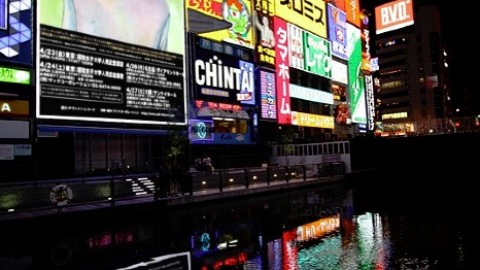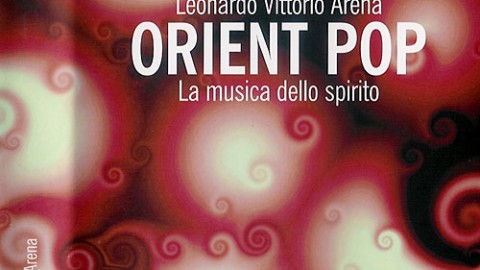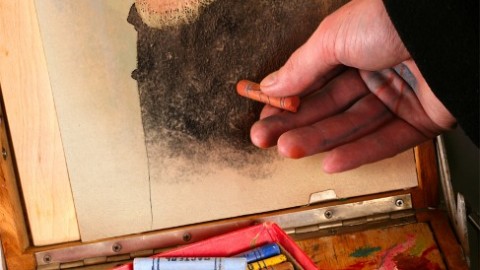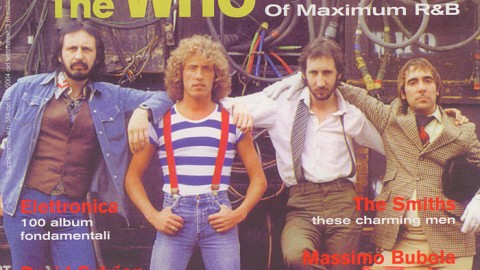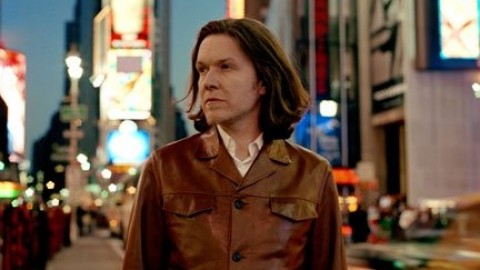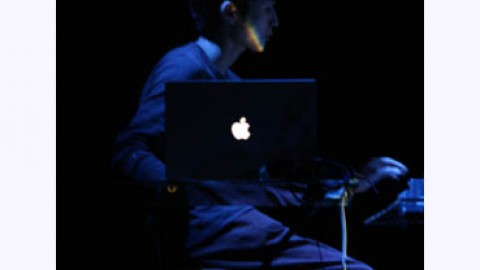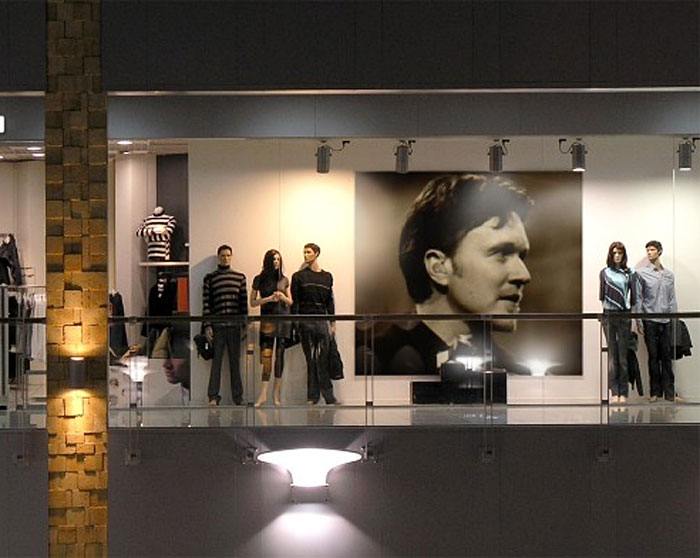
Exclusive davidsylvian.net interview with David.
QA01: Blow Peoples Hearts Wide Open
2001 www.davidsylvian.net by Gerrit Hillebrand (August 2001)
This is a busy year for David. After the release of Everything and Nothing, David surprised the public with work he has done for Readymade and Chris Vrenna (tweaker) and in September 2001 the remastered re-issue of Damage will see the light of day, followed in early 2002 with the release of his instrumental compilation album.
But before that, David will be touring during the months September and October in Japan and various European cities.
Just before David started rehearsing with his band for this tour, Trophies had the opportunity to interview David early August 2001. This interview gives answers to many questions about his work during the last months and his forthcoming activities. Enjoy!
ds.net: One of the major changes in your life has been having a family which presumably has left you little time for hobbies. You have mentioned that you enjoyed painting, especially with your daughter Ameera. Are you two still painting together? Are there any plans for an exhibition?
DS: I don’t paint with any regularity. I seem to paint a fair amount after the completion of a recording project or tour as this is generally when I choose to spend time away from writing music. Recently life has been too full, too demanding to focus on the writing of music or the act of painting. Come the end of the tour I hope to be able to give myself plenty of breathing room to explore both activities and more.
I don’t plan to exhibit my paintings. They are for me a mainly private pursuit.
ds.net: Some months ago, an American art magazine featured an artwork of yours called “Crossing”. Can you tell us how this painting came about? And what are your aspirations in painting?
DS: ‘Crossing’ was painted soon after the completion of Dead Bees. I did a number of paintings at that time using mixed media. My aspirations? Painting is very therapeutic for me. I apply myself to it when I feel the impulse or need. The act gives me great pleasure and a certain insight into the current state of my own heart and mind. I don’t take this process too seriously. It’s one of the few activities in life that border on that elusive state known as ‘care free’.
ds.net: Another major change in your life, and probably in the lives of your entire family, was finding your spiritual teacher. You moved closer to one of your teachers (Shree Maa) in California but have recently relocated to the east coast. What was the reason for this move? Is east coast life much different from life on the west coast? what are the things you miss most about Europe, if any?
DS: As a family we needed room to physically stretch out. We’d expanded since our move from Minneapolis with the birth of our second daughter Isobel plus I needed to build a studio from which to work as I have a general dislike of commercial studios. Although my engineer Dave Kent and I have performed minor miracles working in all kinds of unlikely or unconventional places and set ups over the years I felt drawn to create a space of my own. A place of retreat and independence. This forced us to look further afield for a suitable place to live. Failing to find a suitable location on our travels back and forth across America, while on a trip to India we asked our Guru for guidance. It’s through Her grace that we currently live where we do.
Life on the East Coast is certainly different to the West. Our lives have changed quite radically as we’ve progressively moved further away from the urban lifestyle that Ingrid and I were accustomed to into the Mountains and forests of New England. We are far more self sufficient than at any other point in our lives and after a year here we’re beginning to feel somewhat settled which is in complete contrast to our life in California.
As far as Europe goes I miss my friends and family. I miss the cultural diversity. Our frequent visits to NY help appease this withdrawal to some degree but there’s a spirit to life in Europe at its best that can’t be found anywhere in the states no matter how hard we try and compensate for it.
ds.net: You are well known for limited edition releases. One of these was the portrait by Ingrid that can be bought through Opium. Are you planning any more less expensive limited editions?
DS: We do intend to issue more multiples over the coming years and yes the prices will vary considerably.
ds.net: The years prior to the release of Dead Bees On A Cake were scheduled at a fairly relaxed pace as you focused on writing, recording, family life, and esoteric pursuits. Since then, there seems to have been a flurry of activity – the releases Approaching Silence, Everything and Nothing, the reissued Damage, the Tweaker and Readymade projects, and now the forthcoming tour.
How is all this activity effecting your life?
DS: It’s true to say that this year’s been unlike any other for us as a family. We’ve taken on so much, only part of which relates to our public lives. As I said, I’m looking forward to slowing things down somewhat and narrowing the field of focus once the tour is completed.
ds.net: Now that you are no longer with Virgin, are you intending to spend more time with your family and teachers and leave the music business behind you for a while?
DS: I don’t think so. I intend to start a new work as soon as time and circumstances allow.
ds.net: We are all looking forward to the tour. Is this something that excites you?
DS: I am looking forward to touring this material. I’d hoped to tour with the release of Dead bees but we were unable to pull something together that would’ve satisfied me. We’ve pulled this tour together with no financial support or sponsorship of any kind which means we’ve had to make compromises the most obvious being the exclusion of America on this outing. But other, hopefully less obvious, corners have had to be cut as well. Regardless, if we are blessed with good natured, good spirited people working on all aspects of the tour (as we have been to date) it’ll be one to remember.
ds.net: Will the tour be a retrospective or will you be playing new songs?
DS: I’ll be playing material from the last two major releases plus compositions which will suit this particular line up of musicians culled from any of the releases of the past 21 years or so. I’d thought of including new material but as we’ve so much ground to cover as it is there might not be room for it. We’ll see.
ds.net: Will your family be travelling with you on tour?
DS: My family won’t be travelling with me through out as the children will be in school at the time.
ds.net: The band line up surprised many people. We’re familiar with your brother Steve Jansen but can you tell us how you came to select Matt Cooper, Tim Young and Keith Lowe on this tour?
DS: It was a relatively simple process of selection. I’d done a little research for the proposed Dead Bees tour. This mainly consisted of asking friends for recommendations and checking their suggestions out. Keith was recommended to me by Bill Frisell. I can’t think of a better recommendation really. Soon after, Keith started dropping me the odd email, making an effort to stay in touch. I really appreciated his generosity of spirit so he was IN from the beginning. I was already aware of Zony Mash the band which Keith was to join. I’d heard Tim’s playing in this line up plus he’d come recommended to me by another friend and musician Eyvind Kang. Tim sent me a compilation of his work soon after the release of Dead Bees. I loved what I heard. The connection with Matt might be a little more obvious. I’d become aware of his playing through Andreas Allen the other half of the Outside team and the programmer for the drum track on Magnolia. Matt’s solo work particularly impressed me. There was a melodicism to his playing which reminded me a little of Ryuichi’s style. Matt’s style crosses genres successfully and he locks to a beat with a mixture of fluidity and precision.
ds.net: Is Ingrid going to appear as guest vocalist with you on stage?
DS: It may happen yes. I hope guest players will join us once in a while at different stages on the tour, Much depends on our paths crossing at fortuitous moments in time.
ds.net: I understand that Readymade will be supporting you in Paris. Will he be opening for you or taking part in your set?
DS: Readymade will be acting as support act in Paris only.
ds.net: Although you refer to Everything And Nothing as an overview of your work, the PR machines are selling it as a “Best Of”. When people buy it, they immediately wonder why tracks like Forbidden Colours aren’t included. Why did you exclude this track from the compilation?
DS: It wasn’t my intention to exclude F.C. We’d been trying to get the original multitrack sent to us for over a year but as Virgin no longer had the rights to the recording and the company that did own them didn’t appear to know that they did the process was drawn out. In fact we never did receive the original recording hence its exclusion.
ds.net: I’d imagine that Virgin wanted you to come up with a conventional Best Of album. Were they surprised at the approach you took?
DS: Surprised and resistant at first but they came around. Of course they now have the option of compiling new ‘Best of cds’ to their hearts content without my meddling.
ds.net: I understand that the recording of Dead Bees was a difficult process. Did you have any problems in putting together the compilation album?
DS: Not especially. I knew which pieces I wanted to use from the outset. The hardest part was tracking down the required multi tracks as they weren’t all to be found in Virgin’s vaults. This process took months to complete. I was still receiving multi tracks right up until the last week of mixing.
ds.net: Later this year, we hope that the instrumental compilation album will see the light of day. I understand that you see a compilation album as more of an opportunity for you to “complete” many tracks rather than simply selecting tracks from already released material. Is that correct ? Are you able to tell us what actually will be on this compilation ? Do you have a title for the album?
DS: I won’t go into detail as yet as I’ve yet to put the pieces together which means everything including the current working title is be subject to change. The piecing together of this compilation is necessarily a less involved process than E+N. There will be one or two new mixes and possibly a couple of new tracks but there’s fewer unfinished instrumental pieces lying around in Virgin’s vaults than there were songs so the same rules don’t quite apply.
ds.net: You’ve said that the entire score of the Gaby Agis performance ‘Kin’ will not see the light of day. Do you still feel this way?
DS: Yes. The strongest tracks are already available.
ds.net: If you had not mounted the Polaroid exhibition, we would never have seen the film Preparations For A Journey or heard it’s more than excellent soundtrack, including Steel Cathedrals. The latter is still referred to as one of your finest works. Working on the instrumental album, you may well have listened to it again. What do you think of this track after all these years? Will it be included on the instrumental album?
DS: I have heard Steel Cathedrals again after many years. It’s an interesting piece as it was a precursor to the work I was to do with Holger and later again with RTC. I based the piece around a very simple structure and then improvised the work into shape. Many people contributed from Ryuichi to Kenny Wheeler and Robert Fripp. As a composition it has its moments but as its composer I’m drawn to its weaknesses rather than to its strengths. But it’s an area of work which will likely go on intriguing me for many years to come. I daresay a detail of Cathedrals will surface on the final compilation.
ds.net: The Sylvian/Fripp album Damage is being re-issued in September. The original was designed by Russell Mills and included artwork by Shinro Ohtake. For the re-issue, the artwork is also by Shinro. Can you tell us more about the new artwork? Was Russell involved? And will the title of the re-issue still be Damage?
DS: I asked Shinro to create a new piece for the re-release of Damage which he has done. Its a computer based work with is an area of investigation Shinro’s been drawn to of late. I won’t do into a description of the work which is abstract in nature other than to say it has an obvious link to the previous cover art. Russell wasn’t involved on this project as Shinro elected to work with a Japanese designer close at hand. The album title remains the same.
ds.net: All your recent albums feature artwork by Japanese artists. What attracts you to these artists?
DS: I’ve simply forged relationships over the years with some wonderful Japanese artists. You don’t plan such things they just happen. As a result I sense they have a fair understanding of my needs for any given project. Communication, ironically, is less complex. I’ve tried working with other artists and designers from different parts of the world but have failed to make comparable connections outside of two or three ongoing collaborations.
ds.net: The remastered version includes Jean the Birdman in place of Darshan. With today’s technology, the album could easily have included both songs. Why did you choose to leave Darshan off the album?
DS: I was simply trying to make the best of the material at hand in the time allotted. I felt the live version of ‘Darshan’ weakened the set considerably. Its duration and lack of innovation tested my patience. I believe the album is stronger for its exclusion.
ds.net: Ryuichi Sakamoto’s Zero Landmine project resulted in a magnificent EP. To some of your fans, the lyrics may’ve appeared unadventurous. Have you heard this criticism before and why did you choose to write lyrics in this style?
DS: I think I’m generally my most unkindest critic particularly where these lyrics were concerned. Ryuichi asked for a song about the landmine issue. A song which was to be sung by young children. That narrows the range of possibilities enormously as far as I’m concerned. I hesitated to get involved believing I wasn’t the man for the job but Ryu was in a bit of a jam and needed a set of lyrics to work to with some urgency. Ultimately I only had a matter of hours to write them. Still, I’m not sure I’d have fared any better with more time on my hands to be honest. Having said that I gave the lyrics to Ryu suggesting he rework them. But he was moved by their simplicity which I found quite touching and consequently composed a beautiful melody around them which gave them a whole new life as far as I’m concerned. When I sing the song now I barely recognise the lyrics as those I wrote in isolation. Their pedestrian nature, at least from my perspective (and I’m not attempting to justify them), overcome in large part by Ryuichi’s inspired emotional response to them.
ds.net: Do you expect to see an International version of the Zero Landmines TV appeal?
DS: I’m sure this will ultimately come about. Whether there’ll be a direct connection to the Japanese campaign or not I can’t say. As far as I’m concerned his was really Ryuichi’s chosen issue and I was fortunate enough to be invited to get involved. I don’t know if he has plans to take it any further at present and if he does in what capacity.
ds.net: You surprised everyone with the track Sugar Fuel for the Readymade album which is an amazing piece of work in an area in which you haven’t previously worked. How did the two of you come together? Can we expect more tracks like this from you?
DS: The man behind ‘Readymade’ Jean-Phillipe contacted me. Sent me some of his material, asked if I’d like to work on something together. I liked what I heard. I may produce more work of this nature.
ds.net: It appears that you have recently discovered the use of sampling devices, computer based recording etc. and now with Readymade you enter the area known as electronica. Can we expect more work of this nature from you?
DS: I’d like to do more work in this area. It doesn’t seem such a radical departure for me considering all the fooling around with electronics I’ve done over the years. Even on my most acoustic based recordings there’s always been the presence of electronics in one form or another no matter how subtle. My interest in music remains consistent, eclectic and fairly broad. I wouldn’t limit future work by cutting off avenues of interest. We first started using samples back in 1980 I think it was so once again I don’t believe this area is particularly new to me although the technology has made extraordinary advances of course, endlessly expanding the creative possibilities of sample use and manipulation.
ds.net: How did the Readymade track come about? Which came first, the lyrics or the music?
DS: Jean-Phillipe sent the track to me in Napa, California. I wrote the lyrics and melody, recorded it and sent it back. That simple really.
ds.net: In August, we are expecting the release of the first single from Chris Vrenna’s Tweaker project. The track was recorded a long time ago and Chris decided earlier this year to re-mix the entire album. What can you tell us about this project? How many tracks did you record for it?
DS: Chris sent a few tracks to me, asked me to select the one I’d like to work on and return it with my contribution. The usual method of working in this day and age with the affordability of quality recording technology and ever diminishing recording budgets. The album has an underlying concept which appears to be based on a specific period in Chris’ life. He gave me an idea where this particular piece I’d selected came in the emotional journey the album attempts to make. I took that into consideration when writing the lyrics. As I remember it I was working on a mind set that was a cheery mixture of fear, anger and paranoia. That burdening sense of misplaced attachment mixed with the inability to take positive action that can come to a head just before life changing decisions are sometimes made.
ds.net: In a 1999 interview, you spoke about writing and recording again with your wife, Ingrid Chavez. I understand that some of the tracks on Dead Bees, such as I Surrender and Pollen Path, were in fact written for her. In the period that you were writing Dead Bees, Ingrid recorded an EP, Little Girls”. Some of the songs from Little Girls were included as B sides on the I Surrender single.
Were the Little Girls tracks written in the same period as the Dead Bees songs? Can we expect to hear anything new from Ingrid in the near future?
DS: Not in the near future. Her abiding interests have led her away from music although she has returned to singing devotional bhajans of late. I believe the desire to write and record are still with her but its impossible to say if and when that desire might be expressed or realised. All in her own time no doubt. If she wants something badly enough she’s the kind of person that can make it happen. The material for ‘Little girls with 99 lives’ was written around the same time as the earlier pieces for Dead Bees. ’92 I believe.
ds.net: You mentioned that the Little Girls EP was heavily bootlegged. What are your views on this?
DS: I get irritated when material gets bootlegged of course particularly if it was never intended for general public consumption. Ingrid’s EP wasn’t such a big issue for us. We simply felt that as everyone was asking where they could hear these tracks we ought to make them readily available plus we couldn’t see why others should benefit from our work to our exclusion.
ds.net: At the end of last year, you left Virgin after working with them for 20 years. People wondered if this would be the end of your recording career. In fact, more releases have been announced and we even have a tour. Was it your own wish to release these albums before closing the door on Virgin or was it contractual? Are there any more Virgin releases to come?
DS: You couldn’t call the obligation contractual. These albums had been on the cards for years. I felt it right to see them through while I still had the opportunity to be involved.
There are no more releases planned with Virgin after the instrumental compilation is completed.
ds.net: Now you are out of contract, are you planning on starting your own label? If so, what type of artists would you like to work with?
DS: I’ve given that approach a fair amount of consideration over the past year. That direction certainly has its attractions. I’m seriously considering starting a label of my own. In the meantime I’ll continue working with a major label for the foreseeable future at least where the solo work is concerned.
ds.net: Now that you are no longer directly involved with Virgin, are you concerned that they’ll release a compilation album, possibly featuring tracks you’d rather not see released?
DS: Not concerned no. This is the nature of a major such as Virgin. It must exploit the material to it own ends. Now I’m no longer with them they are free to exploit the catalogue in ways I wouldn’t allow during my tenure. This in large part is out of my control now so I don’t give the matter any thought.
ds.net: Trophies.org is an Internet only resource. I would like to ask you some questions about the Internet.
Has the Internet effected your choices and direction? If so, how? How are you currently using the Internet?
DS: If the internet has effected my creative choices, something I seriously doubt, it is indiscernible at this point in time. I do however use the net a great deal for communications, research and purchases.
ds.net: There is a forthcoming tribute CD with cover versions of your songs performed by people all over the world. The project, Shadowplay, found its origins on the Internet. How do you feel about this type of release? Do you listen to other artist’s versions of your songs?
DS: I don’t believe I’ve ever heard a tribute album of any kind. Heard of them of course. I think they’re fine in principle particularly if the spirit in which they’re created is one of sincerity mixed with a healthy dose of irreverence for the originals.
I don’t believe there’s been many covers of my work but I’ve heard a few yes. I love the idea of people covering my material. It might be a difficult thing to pull off successfully, I don’t know, but the results might be worth the risk.
ds.net: There have been few re-mixes of your work to date. With the exception of The Future Sound of London re-mix of Darshan, these were mostly unexceptional. Would you like to commission artists to do more radical re-workings?
DS: I have serious doubts about the whole remix phenomenon. There’s a certain novelty in hearing anothers take on a piece but little more than that. I’m not that interested in hearing further remixes of my work per se unless there was a greater concept or vision behind the proposition as in Laswell’s take on the music of Miles Davis which I thought worked beautifully.
ds.net: The Godman EP press release refers to Godman “as the first instalment in his own multi layered Millennium project” What happened to the other instalments?
DS: I’ve never heard that phrase used in reference to my work before now. I had no such project planned. I did however have a DVD project in the pipeline but I failed to garner Virgin’s support.
ds.net: Are you planning to release some kind of video compilation on DVD in the near future? If so, would you exclude the video for Pulling Punches? Who was the director of this piece?
DS: I’m not planning any video/dvd compilation. As I’m no longer with Virgin I’d have no control over the content of such a project should it come to light. I don’t remember who directed the Pulling Punches video.
ds.net: So called “Pop” artists releasing jazz orientated albums seems to be very popular recently. You, of course, did this to some extent twenty years ago with Brilliant Trees. Do you plan to pursue this area of work in the future?
DS: I don’t think in terms of genres. The conception of a project excludes predetermined codification. Rises above it. I’m not against the idea in principle mind you. I simply don’t think along those lines.
ds.net: In 1984, you exhibited your Polaroids at Hamiltons Gallery in London. At the time, there was much comment on the similarity between your work and David Hockney’s “Cameraworks”. How did you feel about this? You have since mentioned that you regret the Polaroids being displayed. Can you tell us why?
DS: For the same reason that I wouldn’t exhibit my paintings a private pursuit not meant for public consumption. I wasn’t aware of Hockney’s work when I started my forays into the field, a fact which people had trouble swallowing, but there you go, a fact nonetheless. Yes, there’s a connection with Hockney’s work but it wasn’t originally intended.\
Hockney’s pictures were wonderful though weren’t they?
ds.net: Do you have any plans to work with Nils Petter Molvaer? There were rumours in some Norwegian newspapers that you would be working with him on the forthcoming tour. Can you tell us something about this?
DS: Nils and I have cooked up something together for the instrumental compilation. We do intend to work together on future projects.
ds.net: Do you have any plans to work again with Michael Brook?
DS: I don’t have any plans that include Michael at present.
ds.net: Hermeto Pascoal once said, recording music in a studio is to be closer to Heaven, and playing live is to come down to earth. What is the main difference between live performance and recording music for you?
DS: The recording experience, if we also allow for the creative act of composition, is akin to the birth of a language flowing from the mouth of a child. Live performance is more like standing in an airport terminal where all languages are simultaneously heard and understood.
ds.net: Do you think the reaction of a concert audience can exert an influence on the performance at live concert?
DS: Oh yes. Positive feedback indicates that a connection is being made. This is generally intuited by all concerned and the outward manifestations are merely a wonderful confirmation. Negative feedback obviously works in the reverse though sometimes it can provoke you into trying harder to connect which may or may not be a good thing on any given night. It can be a bit of a wake up call.
ds.net: I imagine that you prefer working in the studio as opposed to live performance, still it must be exciting to play music live with other musicians. Do you enjoy improvising with other players?
DS: Funnily enough I enjoy improvisation in the studio more so than in live performance although there’s obviously room for it in both arenas. I suppose it’s true to say that when it comes to my own work pure improvisation doesn’t interest me in of itself. I’m fascinated by what it brings to the surface but more often than not I’ll choose to manipulate or develop the ideas or performances that results from these sessions. When it come to live performance I enjoy working from a script (the composition), bringing this to life in new and surprising ways with the intonation of a phrase, a response, subtleties that when shared within a group of musicians can really increase the level of awareness, bringing a freshness and intensity to the performance.
ds.net: Everything and Nothing sound like a phrase from a Buddhist teaching, possibly the Heart Sutra. What does this title suggest?
DS: It relates to the experience of samadhi or the merging with divine consciousness. I believe that when this experience is described in words opposites apply equally as there is no duality in such a state. That state has been described in some cultures as the fullness, the oneness, everything. In others it is referred to as the void, the emptiness, nothing.
ds.net: Religion and the arts were once very closely related. Music might have first served as part of ritual worship. Rudolf Steiner said that music appeals to people more intensely than any other art form because it reminds us of the sounds we heard in the world in which we existed prior to this one. If this is the case musicians tap into sounds from other worlds or dimensions when they create music or maybe they access this shared subconscious memory.
Have you ever felt that you are connected to other worlds when you’re creating or performing music?
DS: I don’t think in terms of other worlds but of dimensions which in theory at least are constantly accessible. If I wasn’t aware of this inter connection on a moment to moment basis I think I’d be utterly lost.
ds.net: Have you ever thought of giving up music? If so, when, why, and what prevented you from doing so?
DS: I’ve thought of it from time to time. The one point in my life where it almost became a reality was during the recording of Dead Bees. The journey of making that album was so fraught with difficulties that I began to believe it possible I should never complete the project. I was becoming more and more immersed in my spiritual pursuits and felt drawn to these above all else. I spoke with my teachers who told me to continue in music. They clarified something for me. They reinforced the notion that singing is my sadhana, my path of learning, at least for the time being.
ds.net: What is the ultimate goal of your music ?
DS: To blow peoples hearts wide open.
2001 www.davidsylvian.net. This interview was made possible with the help of David Sylvian and Richard Chadwick at Opium (Arts)

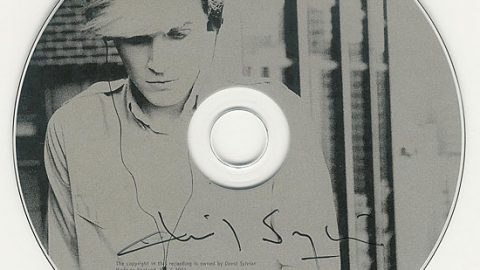
![Nine Horses – Snow Borne Sorrow [review]](https://www.davidsylvian.net/wp-content/uploads/2015/03/kw9h2_1354175421-480x270.jpg)
